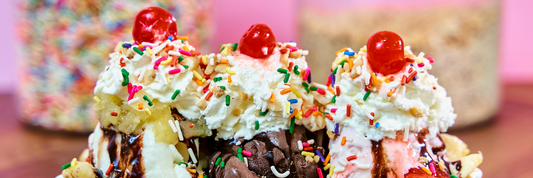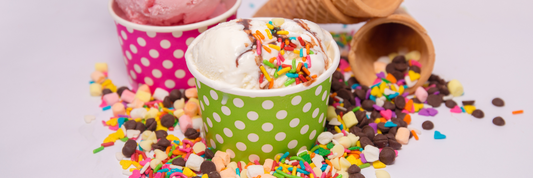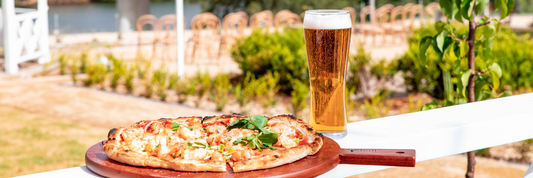ABV is a term used to measure the percentage of alcohol in a beverage. It is an important factor to consider when drinking alcohol, as it can affect the strength and potency of a drink. In this article below, we will explore what ABV is, how it differs in different types of alcohol, and how to calculate it.
What Is Alcohol By Volume?
ABV, or alcohol by volume, is a standard measure of the amount of alcohol in a beverage. It is expressed as a percentage and represents the ratio of alcohol to the total volume of the drink.

Why ABV Is Important?
ABV is important because it allows consumers to know the strength and potency of their alcoholic beverage. It can also help with determining serving sizes and monitoring alcohol consumption. Additionally, ABV can affect the taste and overall experience of a drink, making it important to be aware of when choosing a beverage.
ABV in Different Types of Alcohol
ABV can vary in different types of alcohol. Here is a breakdown of ABV in common alcoholic beverages:
What Is ABV In Beer?
Beer is known as an alcoholic beverage with some of the lowest alcohol levels. Beer typically has an ABV range of 3.5 - 7%, however, there are outliers with higher (>10%) or lower ABVs (<1%). Beers with lower ABVs are typically much lighter and suitable for food pairings, beers with higher ABVs will have a much stronger and acquired taste.

Hard Cider ABV
Hard cider has an ABV range of 4.5 - 7%. Hard cider is sometimes confused as a type of beer, but it is made from fermented fruit juice rather than malt. Especially, hard ciders don't have that much change in their ABV levels.
What Is ABV In Wine?
The ABV of wine is around 12%, which is higher than beers and hard ciders. There are some exceptions, for example, sparkling wines and white wines tend to have a slightly lower ABV of around 10%, while red wines and orange wines have a higher ABV of around 14%.

Liquor ABV
Each different type of liquor will have different ABV levels. However, regardless of whether you’re serving vodka or a type of whiskey, make sure you consider the liquor’s high ABV levels.
- Vodka, whiskey and tequila: 35 - 50%
- Specialty liquors: up to 60%
ABVs of Common Bar and Restaurant Drinks
Alcohol / Drinks
|
Type of Drink |
Alcohol By Volume |
|
Beer |
4-8% ABV |
|
Unfortified Wine |
12-16% ABV |
|
Fortified Wine |
16-25% ABV |
|
Whiskey |
36-50% ABV |
|
Tequila |
50-51% ABV |
|
Bourbon |
40% ABV |
|
Fine Liqueurs |
15% ABV |
|
Gin |
36-50% ABV |
|
Vodka |
40-95% ABV |
|
Rum |
36-50% ABV |
|
Amaretto Sour |
22% ABV |
|
Bloody Mary |
12% ABV |
|
Imported Stout Beer |
6% ABV |
Specific Alcohol Brands
|
Type of Drink |
Alcohol By Volume |
|
Everclear |
75-95% ABV |
|
Bacardi 151 |
75% ABV |
|
Malibu |
24% ABV |
|
Absolut |
40% ABV |
|
Dos Equis |
5% ABV |
|
Canadian Mist |
40% ABV |
|
Irish Cream |
17% ABV |
|
Sambuca |
40% ABV |
|
Yukon Jack |
50% ABV |
|
Cointreau |
40% ABV |
|
Southern Comfort |
35% ABV |
|
Rumple Minze |
50% ABV |
|
German Schnapps |
20-40% ABV |
Alcohol Serving Size
You'll need to consider a drink's ABV by the drink's total volume.
For instance:
- a 12 oz beer with 5% ABV contains 0.6 oz. of alcohol.
- a 5 oz glass of 12% ABV wine also contains 0.6 oz. of alcohol.
The formula to figure out the total amount of alcohol in a standard alcoholic beverage such as wine or beer as below:
|
ABV Percentage * Total Volume of Beverage = Total Alcohol in Beverage |
Because higher ABV beverages will have more alcohol, they are often drunk in smaller serving sizes. This is the reason why glasses of wine are usually drunk in smaller 5 oz. servings, while liquor is typically taken in smaller shots of around 1.25 oz.
How to Calculate ABV
While purchasing alcoholic beverages, the ABV level is indicated on the label, but this isn't the case when preparing alcohol at home.
To calculate ABV, you will need to know the original gravity (OG) and final gravity (FG) of the beverage. The formula for calculating ABV is:
|
ABV = (OG - FG) x 131.25 |
- Original Gravity (OG): The hydrometer reading before yeast is pitched.
- Final Gravity (FG): The hydrometer reading after the fermentation process is complete.
- 131.25: Is the conversion factor for the relative density of alcohol and water, and is reached through the use of stoichiometry calculations.
ABV Calculator
You can also use an ABV calculator to determine the alcohol content of a beverage. Simply input the OG and FG values, and the calculator will provide the ABV percentage.
A common formula these calculators use is:
|
ABV = (76.08 * (original gravity-final gravity) / (1.775 - original gravity)) * (final gravity / 0.794) |
Additional Alcohol Measurements
In addition to ABV, there are other measurements used to determine the strength of alcohol:
Proof - This is a measurement used in the United States to determine the alcohol content of a beverage. It is double the ABV percentage, so a drink with 40% ABV would be 80 proof.
ABW - ABW, or alcohol by weight, is a measurement used in some countries, including the United States. It is calculated by dividing the ABV by the specific gravity of the beverage and multiplying by 100.
Proof vs ABV
Proof and ABV are both measurements of alcohol content, but they are not the same. As mentioned, the proof is double the ABV percentage. For example, a drink with 40% ABV would be 80 proof.
ABW vs ABV
ABW and ABV are similar but measure alcohol content in different ways. ABW takes into account the density of the beverage, while ABV does not. This means that ABW will always be lower than ABV for the same beverage. A drink’s ABW is lower than its ABV, meaning a drink with 5% ABW is a drink with a higher than 5% ABV.
FAQs
What Does 5 Alcohol By Volume Mean?
If a beer has an alcohol ABV of 5%, it means 5% of its volume is pure alcohol, while the rest is water, malt, hops, and other ingredients.
Will 0.5% Alcohol Get Me Drunk?
No, 0.5% ABV is not enough to cause intoxication in most people.
Conclusion
In conclusion, ABV is an important factor to consider when drinking alcohol. It can vary in different types of alcohol and can affect the strength and potency of a drink. Knowing how to calculate ABV and understanding the difference between proof and ABV can help you make more informed decisions about your alcohol consumption. Remember to always drink responsibly and in moderation.







